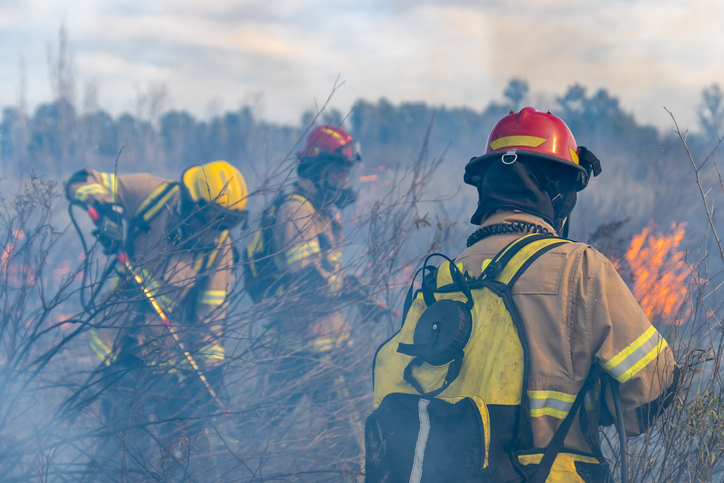According to the Division of Fire Prevention and Control, all 20 of Colorado’s largest wildfires on record occurred in the last 20 years. Do you have the will to fight wildfires and help protect your friends and neighbors? If so, becoming a wildland firefighter is an opportunity you should consider. With enough dedication, training, and drive, you can stand on the first line of defense against one of Colorado’s most dangerous threats.
Here are answers for the big questions that come next when deciding you want to become a wildland firefighter.
What Is a Wildland Firefighter?
Wildland firefighters use a variety of tactics to suppress and manage wildfires, limiting the damage that such fires ultimately cause. Most firefighters work only during fire season (summer months). Therefore, the winter months are ripe for new applicants and training to begin.
How Can I Apply?
The minimum requirements for applicants are to be between 18 and 35 years old and in good physical condition. When you are ready to apply and take on the strenuous physical exam and training, find a local fire division and submit an application. A good resource to find the right fit is the Colorado Division of Fire Prevention & Control.
What Kind of Training Is Involved?
Once your application is accepted, you will be given a written test, and then you will need to earn your red card, or interagency incident qualification card. To get your red card, you’ll need to complete classroom courses and written tests, field training, and the strenuous “pack test.”
The “pack test” involves walking three miles in 45 minutes or less while carrying a 45 pound pack. After a year of experience, you can then attempt additional physical tests to be part of the “hotshot” fire crews. Hotshot crews are firefighters who dive into the most dangerous parts of a spreading fire, using close-up techniques.
Once you have received your red card, your sponsoring agency may list you as an available resource. This means they may dispatch you to wildfires as they occur and as the department or agency needs your assistance, either locally or elsewhere. You also may continue as a volunteer or on-call firefighter while maintaining another job, or you may decide to compete for a full-time position.
What About Certifications?
The National Wildfire Coordinating Group sets minimum training, experience, and physical fitness standards for wildland fire positions. Local and rural firefighting agencies may issue letters of certification. These state that the individuals have met the appropriate physical fitness, experience, and training standards, in place of red cards. There are additional certificates you can earn (fireworks, HazMat, pyrotechnics), but these are optional.
In most years, we consider the months of October-December to be “off-season” for fires. During this time, you can learn about open positions and start applying, with responses coming in the early part of the new year.
Prepare for Wildfires with Farm Bureau Insurance®
Farm Bureau Insurance® helps Coloradans prepare for and recover from wildfires with high quality homeowners insurance policies. Adequately cover your home from damage or loss with home insurance from us. Start by contacting a local agent near you.

